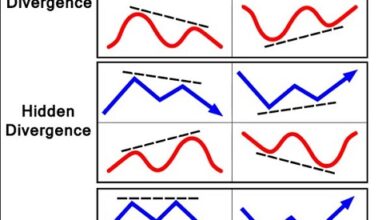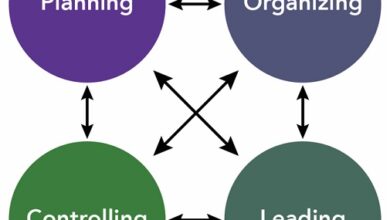Humanism definition/Characteristics/Main names and works
Humanism was an intellectual movement started in Italy in the 15th century with the Renaissance and spread throughout Europe, breaking with the strong influence of the Church and religious thought of the Middle Ages. Theocentrism (God as the center of everything) gives way to anthropocentrism , with man becoming the center of interest. Humanism definition
In a broad sense, humanism means valuing the human being and the human condition above all else. It is related to generosity, compassion and concern for valuing human attributes and achievements.
Humanism seeks the best in human beings without using religion, offering new ways of thinking about the arts, sciences and politics. Furthermore, the movement revolutionized the cultural field and marked the transition between the Middle Ages and the Modern Age . Humanism definition
Specifically in the field of science, humanist thinking resulted in a departure from the dogmas and dictates of the church and provided great progress in fields such as physics, mathematics, engineering and medicine.
Characteristics of Humanism
Among the main characteristics of humanism stand out:
- Transition period between Middle Ages and Renaissance;
- Valuing the human being;
- Rise of the bourgeoisie;
- Emphasis on anthropocentrism, that is, man at the center of the universe;
- Human emotions began to be more valued by artists;
- Departure from dogmas;
- Valuing divergent debates and opinions;
- Appreciation of rationalism and the scientific method.
humanism in the arts
Through their works, intellectuals and artists began to explore themes related to the human figure, inspired by the classics of Greco-Roman antiquity as models of truth, beauty and perfection. The sculptures and paintings now featured extremely high degrees of detail in facial expressions and human proportions, and the period was marked by the development of various techniques. Humanism definition
Vanishing point perspective (also called Renaissance perspective) was one of the painting techniques developed during the humanist movement, providing symmetry and depth to the works.
In the fine arts and medicine, humanism was represented in works and studies on anatomy and functioning of the human body.
Main names and works of humanism
Some of the main humanist artists from the time of his birth, followed by some of his works are:
Literature
- Francesco Petrarca : Songbook and Triumph, My Secret Book and Itinerary for the Holy Land
- Dante Alighieri : The Divine Comedy, Monarchy and Conviviality
- Giovanni Boccaccio : Decameron and The Philocolo
- Michel de Montaigne : Essays
- Thomas More : Utopia, The Agony of Christ and Epitaph Humanism definition
Painting
- Leonardo da Vinci : The Last Supper, Mona Lisa and Vitruvian Man
- Michelangelo : The Creation of Adam, Sistine Chapel Ceiling and Last Judgment
- Raphael Sanzio : School of Athens, Sistine Madonna and Transfiguration
- Sandro Botticelli : The Birth of Venus, The Adoration of the Magi and Spring
Sculpture
- Michelangelo : La Pieta, Moses and the Madonna of Bruges
- Donatello : Saint Mark, Prophets and David
Humanism in Literature
Humanism also corresponds to a literary school that prevailed in the 14th and 15th centuries.
In literature, palace poetry stands out (which appears inside the palaces), written by nobles who portrayed the uses and customs of the court. Some Italian writers who had the greatest impact were: Dante Alighieri (Divine Comedy), Petrarca (Cancioneiro) and Bocaccio (Decameron). Humanism definition
Humanism and Renaissance
The historical context of humanism is intertwined with that of the Renaissance, considering that it was humanist thought that established the ideological foundations that served as the basis for the Renaissance movement.
Between the 14th and 17th centuries, humanism determined a new posture in relation to the religious doctrines in force at the time, proposing a departure from them and a more rational and anthropocentric interpretation of the world.
During the Renaissance, humanist thought was also characterized by attempts to free the human being from the rigid rules of medieval Christianity. In a broad sense, humanism at this time served as a struggle against medieval obscurity, and led to the creation of scientific behavior free from theological norms.
Humanism and Classicism
Humanism is often related to classicism as both were anthropocentric movements that took place during the Renaissance. Humanism definition
Classicism became evident in the 16th century (a century after the emergence of humanist thought), functioning as a strand of humanism that aimed to establish rationalism and anthropocentrism, rescuing classical Greco-Latin values, prior to the influence of the church. Thus, it is possible to affirm that classicism was one of the forms of manifestation of humanist thought.
Despite having a great impact on culture and philosophy, the respect for Classical Antiquity brought about by classicism had greater visibility in the visual arts, which is why the classicist movement is seen as predominantly aesthetic.
Secular Humanism
Secular Humanism, also known as Secular Humanism , is a philosophical current that addresses social justice, human reason and ethics. Humanism definition
Followers of Naturalism, secular humanists are usually atheists or agnostics, denying religious doctrine, pseudoscience, superstition, and the concept of the supernatural. For secular humanists, these areas are not seen as the foundation of morality and decision-making.
Secular humanists are based on reason, science, learning through historical accounts and personal experience, which are ethical and moral supports, giving meaning to life.
Humanism and Psychology
Humanistic psychology had its origins in the mid-twentieth century, and its importance increased significantly in the 60s and 70s. As a branch of psychology, specifically psychotherapy, humanistic psychology emerged as a reaction to the analysis exclusively carried out on behavior. It is considered as an additional approach, along with behavioral therapy and psychoanalysis. Humanism definition
Based on humanism, phenomenology, functional autonomy and existentialism, humanistic psychology teaches that human beings have a potential for self-realization within them . Humanistic psychology is not intended to review or adapt existing psychological concepts, but to be a new contribution to the field of psychology.



